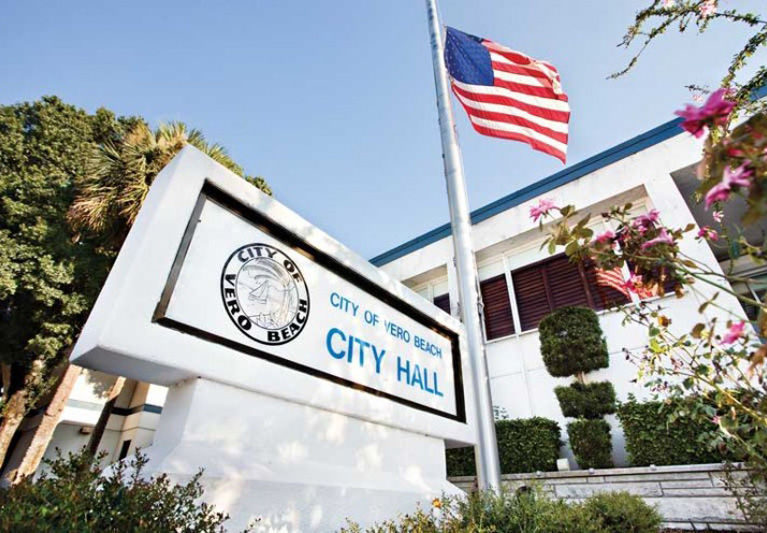
VERO BEACH — The City Council Tuesday voted 4-1 to move forward with a $1 million plan to run sewer lines in the beachside Bethel Creek neighborhood at the north end of the city, and to begin installing sewer-septic systems to protect the Indian River Lagoon from failing drainfields.
In what was expected to be a quick, unanimous approval of the ordinance turned into a debate over whether or not Bethel Creek residents should be informed or consulted first before the City expands sewer service to their area over the next two years.
Vice Mayor Jay Kramer, a Bethel Creek resident, voiced concerns expressed to him by neighbors that, in its haste to get state permission to use the Septic Tank Effluent Pumping (STEP) systems to protect the imperiled waterway from nutrient leaching, City officials did not take time to get the buy-in from the affected homeowners.
“We’re forcing people to upgrade their systems,” Kramer said. “We’re forcing people and they’re just waking up to what’s going on.”
Getting input from Bethel Creek residents, Kramer said, “Would bring a lot more peace in the neighborhood.”
“I can’t vote for this without having the public informed on this,” Kramer said.
On this issue, Kramer disagreed with Mayor Dick Winger, who pointed to what he called clear evidence that septic tanks harm the lagoon and said the ordinance was “needed as an implementation step, but I think we’re at the point of passing this and moving on.”
Residents could be educated later, after Council approval, Winger said. Water-Sewer Director Rob Bolton said staff is planning to hold a presentation in December.
Hooking up to the sewer line, and thus incurring a monthly sewer bill, would be voluntary for homeowners except in the event of a septic tank failure. Kramer ultimately voted against immediate implementation of the ordinance, despite, he said, the fact that he was one of the people who went to Gov. Rick Scott’s administration to gain regulatory permission to use the system.
Bolton explained that a failure would be an event that would require a permit from the Health Department.
“A pumpout would not mean a failure,” Bolton said, meaning that homeowners could still maintain well-operating septic systems for their entire natural life span.
Bolton pointed out that the cost of hooking up to the STEP system could be slightly less expensive, and less invasive to the property and landscaping, than replacing the septic tank and drainfield.
Kramer urged the council to wait until a mailing could be done to the residents and a meeting could be held to present the plan, field questions and answer concerns.
That meeting could also be used to gauge the level of interest in hooking up to the sewer line. Early adopters of the program in the first year can qualify for nearly $3,500 in credits, making the initial cost to the homeowner between $6,000 and $7,000. Monthly sewer bills would then depend upon consumption, but Bolton said the typical city water bill is $40 to $45 per month.
Councilwoman Pilar Turner said she was concerned that Bolton had not crunched the numbers to determine how the project could pay for itself over time.
“What minimal participation do we need to make it break even?” she asked.
City Manager Jim O’Connor said, “The bottom line is there’s not going to be a return on our investment in seven years,” and Bolton, when pressed, said it would be more like 20 years.
O’Connor reminded the council that the aim of the STEP system is not financial, but a two-fold goal of capturing the waste or effluent that’s currently seeping into the lagoon, and of providing a cost-effective sewer system.
“We need to remember our goal here and why we are doing this,” O’Connor said.
Mayor Dick Winger, a major advocate of the STEP system, said “This is being paid for by the enterprise fund and not by the taxpayer.”
The self-supporting sewer utility covers its cost via utility rates, not with property taxes.
For additional details on the STEP system and the Step Up and Save program, read previous coverage of the issue.
Getting input from Bethel Creek residents, Kramer said, “Would bring a lot more peace in the neighborhood.”



